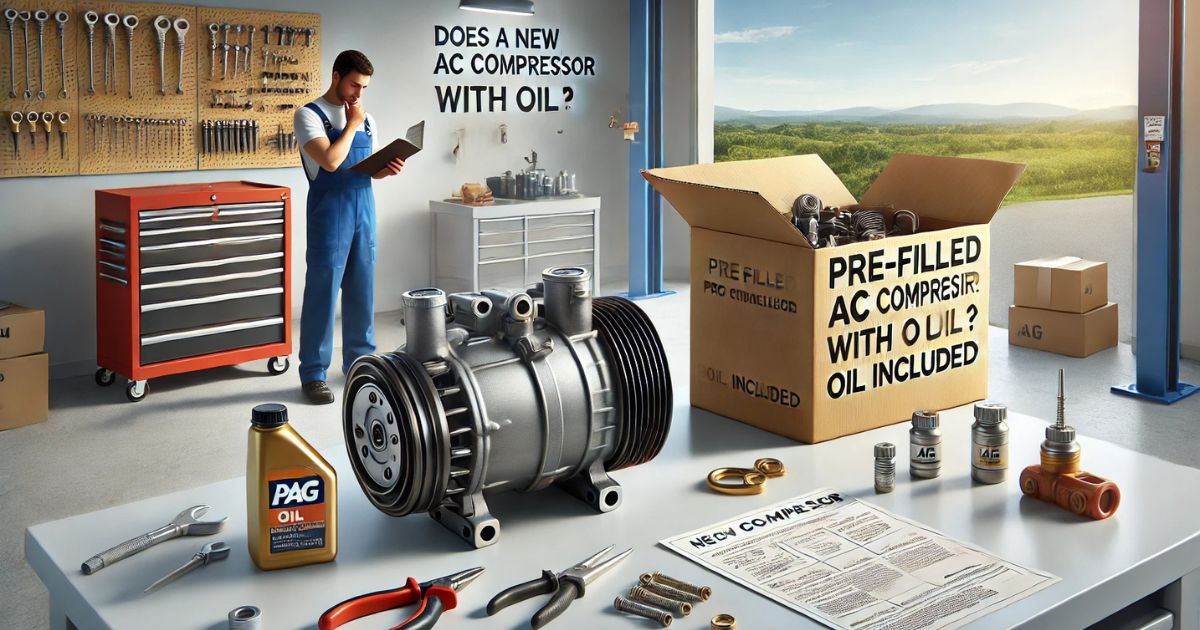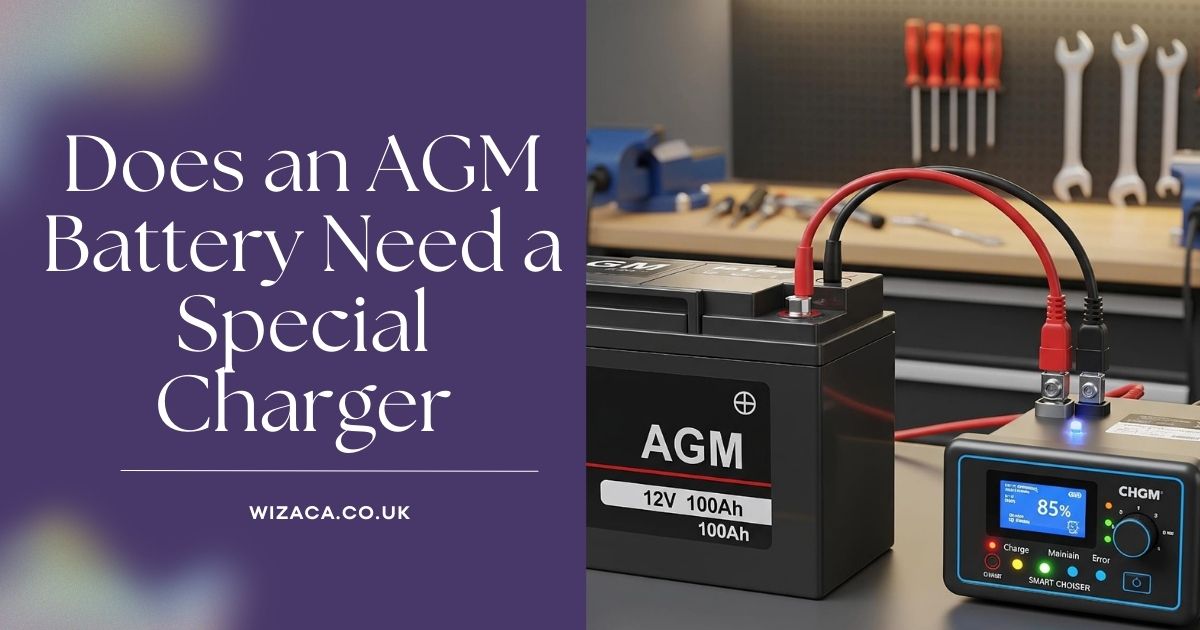Yes, most new AC compressors come with oil already inside, but the amount and type can vary depending on the manufacturer and whether the compressor is new, rebuilt, or remanufactured. It’s important to verify the oil type and quantity before installing a new compressor to ensure proper function and avoid damage to your air conditioning system.
Here’s a detailed breakdown of what to expect with a new AC compressor and how to handle the oil.
Why Does an AC Compressor Need Oil?
AC compressors require lubricant oil to:
- Lubricate moving parts inside the compressor.
- Protect the system from wear and reduce friction.
- Help maintain proper sealing inside the compressor.
Without the right amount and type of oil, the compressor can overheat, wear out prematurely, or fail completely.
Does a New AC Compressor Always Come With Oil?
1. Brand-New Compressors
- Most OEM (Original Equipment Manufacturer) and aftermarket compressors come pre-filled with some oil.
- However, the oil inside may only be:
- A small amount for shipping and storage.
- A full system charge, depending on the manufacturer.
- Always check the label or installation instructions to know how much oil is inside.
2. Remanufactured or Rebuilt Compressors
- These often come with pre-added oil, but the quantity and condition can vary.
- Some remanufactured compressors have drain plugs so you can check and adjust the oil level before installation.
3. Dry Compressors
- Some compressors are shipped dry, especially if they’re sold as part of a kit. These require you to add the oil yourself during installation.
What Type of Oil Does an AC Compressor Use?
The oil type depends on the AC system design and refrigerant:
- PAG Oil (Polyalkylene Glycol): Common in modern R-134a and R-1234yf automotive AC systems.
- Mineral Oil: Used in older R-12 systems (rare today).
- POE Oil (Polyol Ester): Typically used in retrofit systems and some industrial/commercial AC units.
The correct viscosity of PAG oil (PAG 46, PAG 100, or PAG 150) depends on the vehicle manufacturer’s specifications.
How Much Oil Should Be in the AC Compressor?
The amount of oil varies by vehicle or system. Typical oil capacity ranges are:
- 4 to 10 ounces for most automotive systems.
- Specific amounts depending on compressor model and system design.
Refer to the service manual or compressor manufacturer’s instructions for exact specifications.
How to Check and Add Oil to a New AC Compressor
- Drain and Measure the Existing Oil
- Some compressors come with more oil than needed.
- Drain the oil into a measuring cup to see how much is present.
- Compare With System Specifications
- If the system requires more or less oil, add or drain accordingly.
- Distribute Oil Throughout the System
- Some oil should be added to other components (condenser, evaporator, accumulator/drier) based on the system’s repair history.
- If components like the drier or evaporator were replaced, they often need additional oil.
What Happens If the Compressor Has Too Much or Too Little Oil?
- Too Much Oil
- Can reduce cooling efficiency.
- May cause excessive pressure and damage components.
- Too Little Oil
- Causes increased friction and heat, potentially leading to compressor failure.
Conclusion
Most new AC compressors come with oil, but you should always verify the type and amount before installation. Draining, measuring, and adjusting the oil level ensures your AC system runs efficiently and avoids damage. Whether you’re replacing an automotive or residential AC compressor, following proper oil procedures is key to a successful repair.
FAQs
Does a New AC Compressor Come Fully Charged With Oil?
Most compressors come pre-filled with oil, but not always with the correct amount for your system. Always check before installation.
How Do I Know What Oil to Use in My AC Compressor?
Refer to your vehicle owner’s manual, service manual, or compressor manufacturer’s instructions. Most modern automotive systems use PAG oil.
Can You Reuse Old AC Compressor Oil?
No. Always use new, clean oil when replacing or installing an AC compressor.
What Happens If I Don’t Put Oil in a New Compressor?
Running a compressor without the right amount of oil can cause severe damage or immediate failure due to lack of lubrication.
Do I Need to Add Oil When Replacing Other AC Components?
Yes. Replacing components like the receiver/drier, expansion valve, or evaporator may require additional oil to compensate for oil trapped in old components. Check the service guide for exact amounts.
Also Check:
• Does an AC Compressor Make Noise
• Does AC Burn More Gas Than Windows Down
• Does Air Conditioning Use Gas?
• Does a New Air Conditioner Condenser Come Charged With Refrigerant










